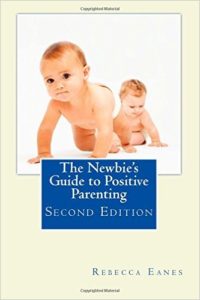 Parenting can be very rewarding; it can also bring us to our knees, leaving us overwhelmed, frightened and desperate. Kids with tough starts, trauma histories and strong wills can prove difficult to manage. What parent has not had the frustrating experience of recognizing they cannot compel an uncooperative or unwilling child to do something? Consequences, incentives, threats, pleading…nothing works. Such power struggles leave parent and child exhausted, stressed and unhappy. Family life becomes mired in confrontation, exasperation and conflict.
Parenting can be very rewarding; it can also bring us to our knees, leaving us overwhelmed, frightened and desperate. Kids with tough starts, trauma histories and strong wills can prove difficult to manage. What parent has not had the frustrating experience of recognizing they cannot compel an uncooperative or unwilling child to do something? Consequences, incentives, threats, pleading…nothing works. Such power struggles leave parent and child exhausted, stressed and unhappy. Family life becomes mired in confrontation, exasperation and conflict.
So what recourse do parents have? Coaching uses some fundamental presuppositions to develop effective strategies that move families forward through difficulty, for example, accountability and working/not-working. Accountability examines how one’s own behavior–to whatever slight degree– contributed to an outcome. This is very removed from either fault-finding or assuming responsibility that rightfully belongs to others.
Accountability helps identify leverage points for future change because our own behavior is the only thing over which we have total control. By backtracking through the decision tree that led to a given outcome, choice points can be identified that might have altered the result. The purpose is to identify an exit ramp from the chaos. Note that this removes the need to assign blame. Fault is irrelevant. Remember, the blame-game takes us out of the game instead of keeping us in it. When we are in the habit of telling our children what they did wrong, we end up alienating them instead of bringing them closer to us. Instead concentrate on making different choices and identifying which ones move the family closer to a mutual goal. This strengthens the relationship. It also reduces anger, shame and resistance, models respect and nurtures capability.
Another important coaching presupposition is working/not-working (as distinguished from the proverbial right/wrong viewpoint.) Right/wrong insists there is only one approach, method or strategy. It crushes creativity, initiative and self-designed problem solving and leaves little room to accommodate individual approaches, patterns and personalities. Right/wrong is more about compliance than competency or cooperation. Focusing on working/not-working allows parents to look at strategies and behaviors with neutrality. It keeps the focus on the goal. Success is determined by effectiveness. Was the goal achieved? If not, what can be tweaked? Added? Subtracted? No energy is wasted on insisting that one approach–MINE–is the correct way while yours is incorrect.
For example, imagine a parent requests a child take the trash to the curb and clarifies the time by when the task is to be completed. He gives the child room to shape the task to his liking, perhaps adding an element of fun. Pull it on his skateboard? Drag it his wagon? Run a timer to see if they can “Beat the Clock?” You get the idea. This allows both parents and children to focus on goals, on learning from mistakes and using such experiences as stepping stones to effective solutions and independence. The parents are not dictators giving orders; they are leaders who model respect and raise children who are thoughtful, capable and willing contributors.
 Relationship offers the most reliable path to attachment, cooperation and strong family connection. When kids care about their parents, they also care about parental priorities, values and standards. One excellent parenting book is The Newbie’s Guide to Positive Parenting, second edition by Rebecca Eanes. Although not specifically directed at adoptive families, it definitely concentrates on sustaining connection, on parenting via modeling the attitudes and behaviors parents want their children to learn. Rebecca asserts an important distinction: “leading and controlling are very different.” One invites cooperation; the other invites rebellion. One is respect-based; the other is fear-based.
Relationship offers the most reliable path to attachment, cooperation and strong family connection. When kids care about their parents, they also care about parental priorities, values and standards. One excellent parenting book is The Newbie’s Guide to Positive Parenting, second edition by Rebecca Eanes. Although not specifically directed at adoptive families, it definitely concentrates on sustaining connection, on parenting via modeling the attitudes and behaviors parents want their children to learn. Rebecca asserts an important distinction: “leading and controlling are very different.” One invites cooperation; the other invites rebellion. One is respect-based; the other is fear-based.
An important mantra guides adoptive parents: “connect before correct.” Positive Parenting includes a commitment to restoration, to repair and reconnect after breakdown occurs in family relationship. Parents must never withhold their love because of a child’s inappropriate choices. Unconditional love is the lifeblood of the family relationship.
Here are a few memorable quotes from the book:
- “Positive discipline isn’t about making a child pay for his mistake but rather learn from it”
- “It’s about teaching them to do what is right instead of punishing them for doing what is wrong.”
- “There is no such thing as an unimportant day when you are shaping a child’s life…Be intentional about what it is you are writing.”
The Newbie’s Guide to Positive Parenting is an excellent book. that will inspire you. Check it out.
Listen to our podcasts: Adoption Matters: Real People. Real Life. Real Talk and Essentials of Adoption Attuned Parenting


